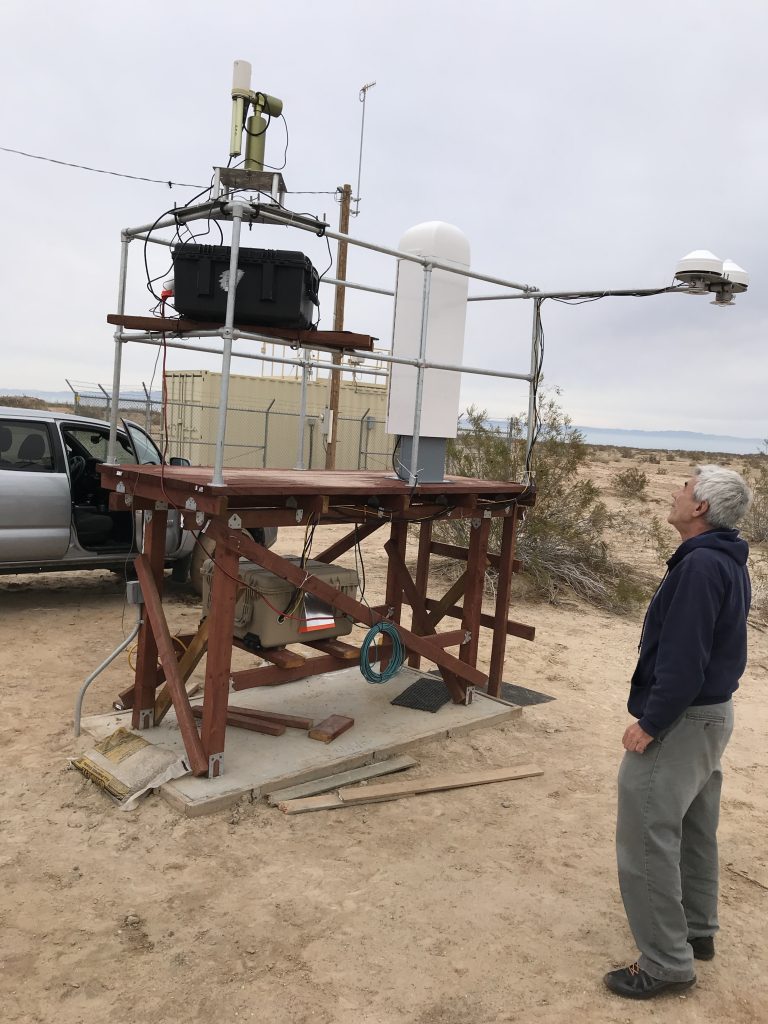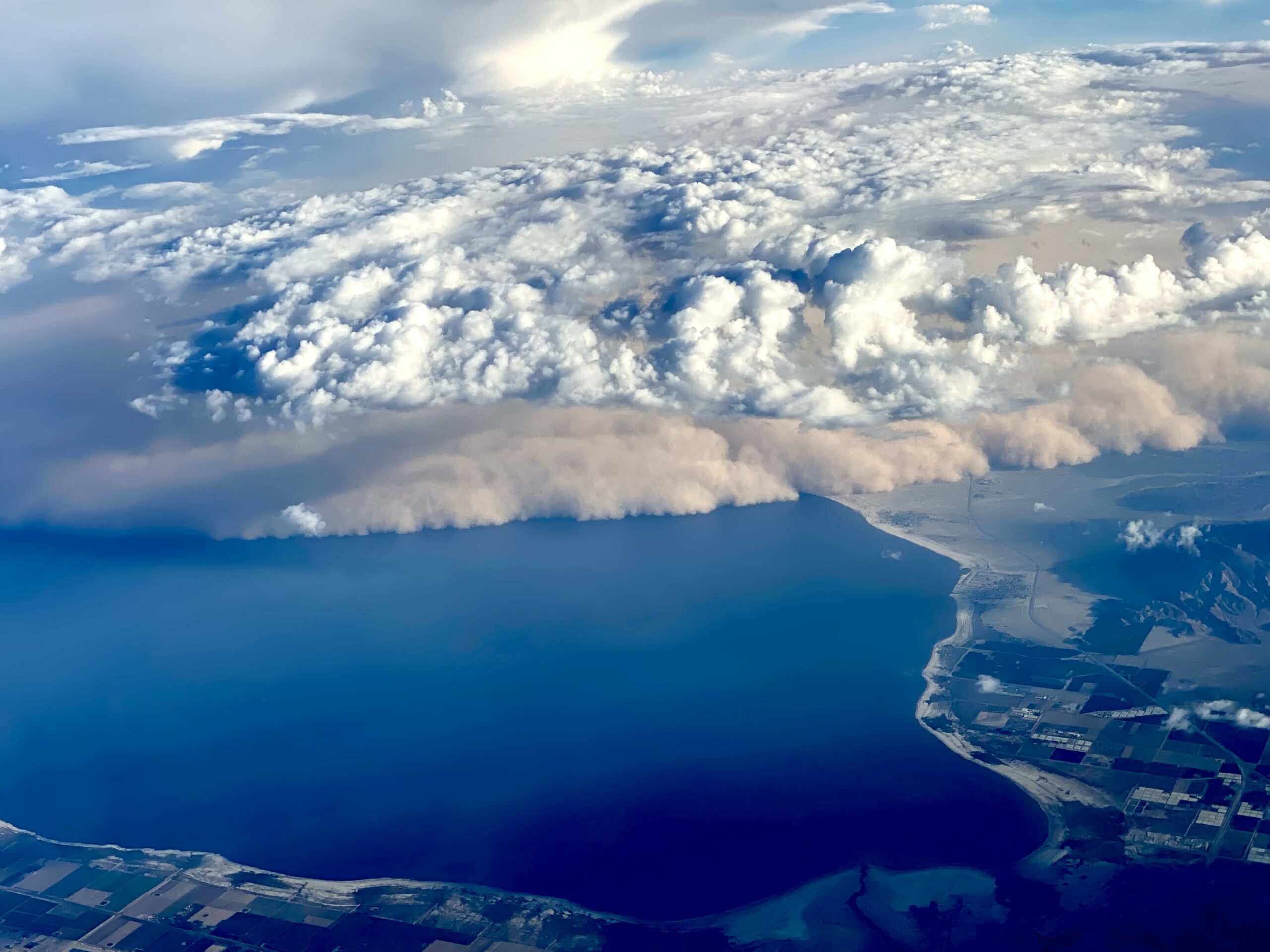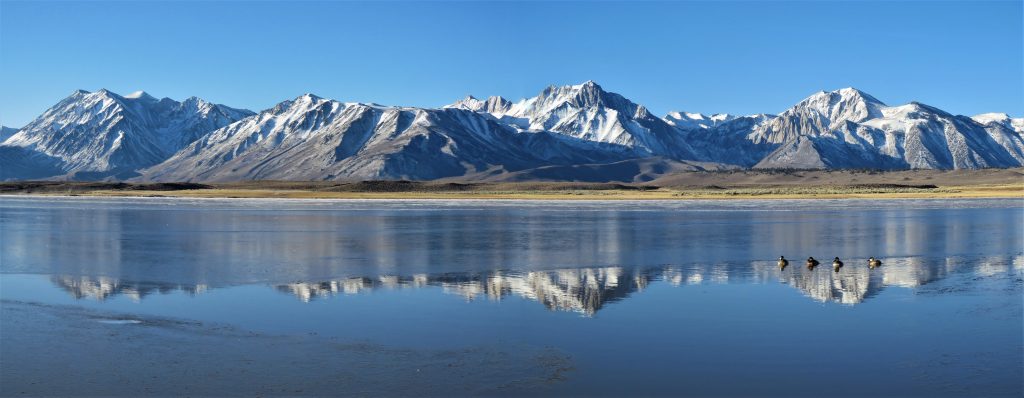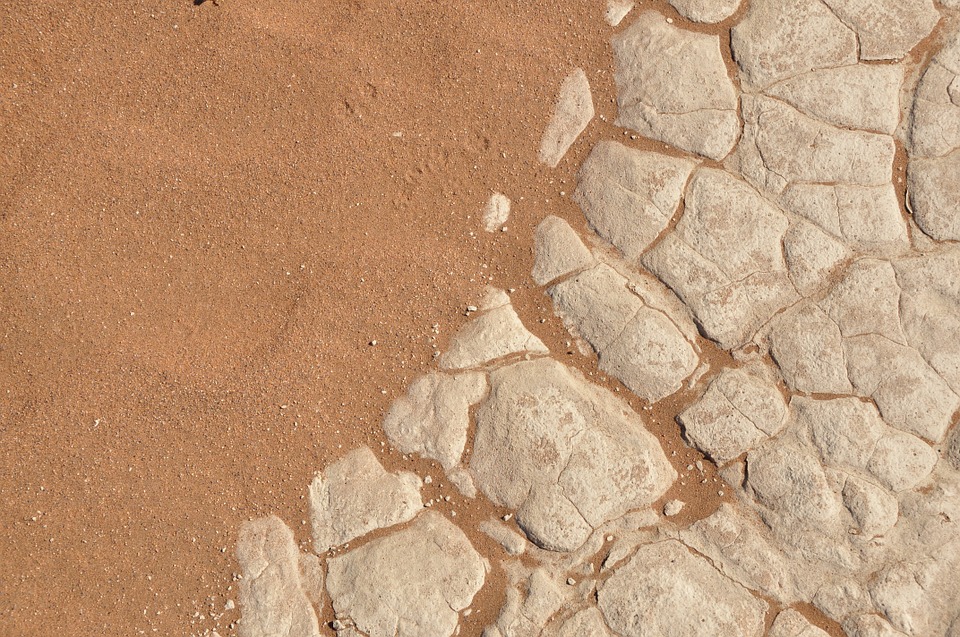Evan Research Lab
Dust storms are pervasive across the planet's drylands, which is why dust, by mass, is the most abundant aerosol in Earth's atmosphere. Once airborne, these mineral aerosols then influence a staggering number of processes in the climate system. The main work of our lab is to improve understanding of how and where dust storms occur, and the impacts of this dust on the climate system. To do this, we conduct field work, utilize data from satellite-based instrumentation, and conduct experiments with numerical models. Below are the current research topics we are working on.
Dust storms and the Salton Sea
Just a hundred miles to the east of San Diego, one of the largest inland lakes in the Western US is drying up as a result of human activity. In order to understand how the shrinking of the Sea will impact future frequency and intensity of dust storms there we need to better understand the dynamics of dust outbreaks in this region. To address this need we have built and instrumented a research site that is providing continuous measurements of aerosols, the structure of the boundary layer, water vapor, and radaitive fluxes. We will use these measurements to improve understanding of the physical processes underlying dust storms (here too), and the impact of dust on weather and climate via the direct radiative effect.
All data from this field site is available through a UCSD Library Digital Collection.
New work in the area is focusing on dust composition and particle dynamics and updates will be posted as new results are generated.

Lab collaborator Robert Frouin waits for the sun photometer to "wake up" and start making measurements.
Radiative Forcing of dust and global climate
There is a large amount of uncertainty related to the magnitude of the dust direct radiative effect. In order to address these uncertainties--and help to evaluate the representation of dust in climate models--we are utilizing new data sets of soil mineralogy from remote sensing platforms. Some of our past work has focused on developing novel and observation-based methods to understand how dust influences the Earth's energy budget.

A Haboob traveling through southeastern California
UC Dust

A Haboob traveling through southeastern California
I am leading a new multi-UC center focused on dust impacts assessment and mitigation for the state of California. You can read more about UC Dust at https://ucdust.ucsd.edu/.
The impact of warming on mountain snowpack
As the planet warms snowpack in montane environments will diminish due to an increase in the fraction of precipitation that falls in the liquid form, and a reduction in the length of time during each year when air temperatures are below the freezing point. However, finding evidence of such effects in the observational record can be challenging due to the influence of natural variability.
This is not a currently active research topic in the lab.
Dust and Atmospheric rivers
California receives the majority of its precipitation from a small number of wintertime storms containing high amounts of water vapor, so-called atmospheric rivers. A number of studies have shown that long-range transported dust from Asia and Africa can alter the amount of precipitation associated with these systems via the glaciation effect. However, observations of such impacts are very limited, and relatively little work has gone into improving our theoretical understanding of the relevant processes. We are tackled this problem using satellite data and idealized numerical modeling, in order to understand how often dust interacts with atmospheric rivers, and under what conditions dust may have a large role in shaping the resultant precipitation.
This is not a currently active research topic in the lab


